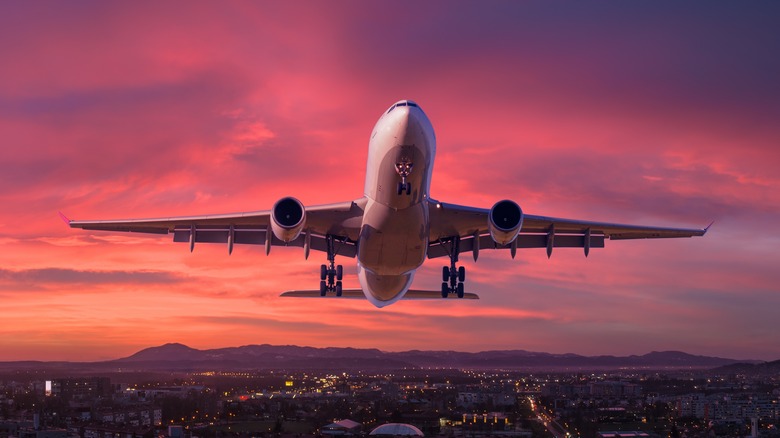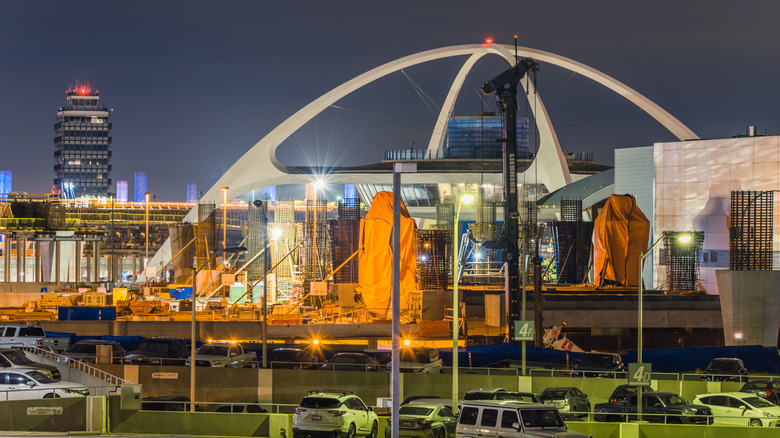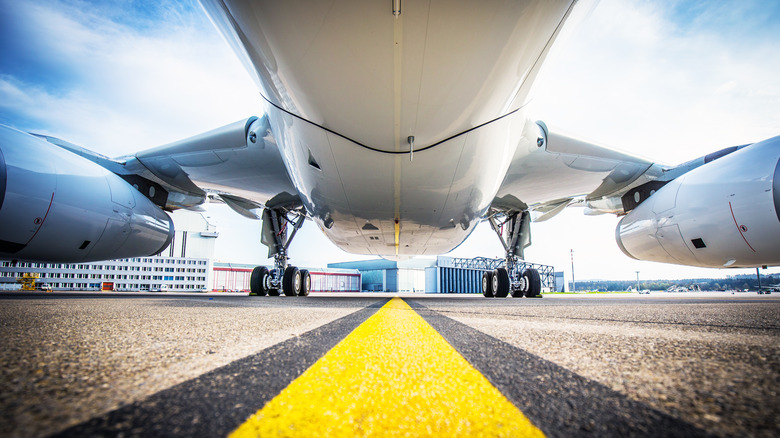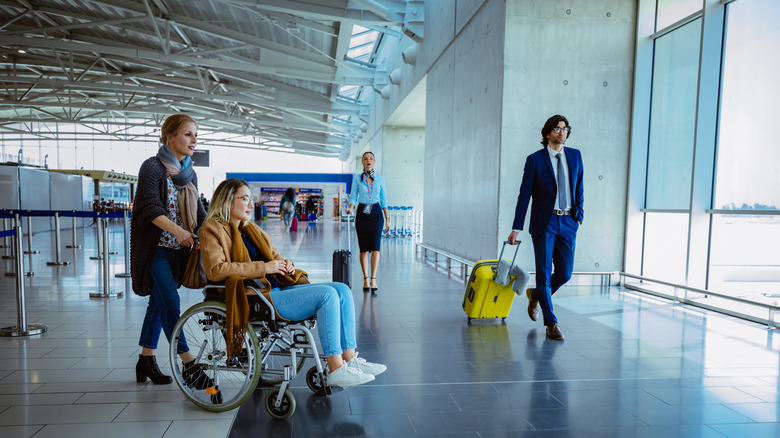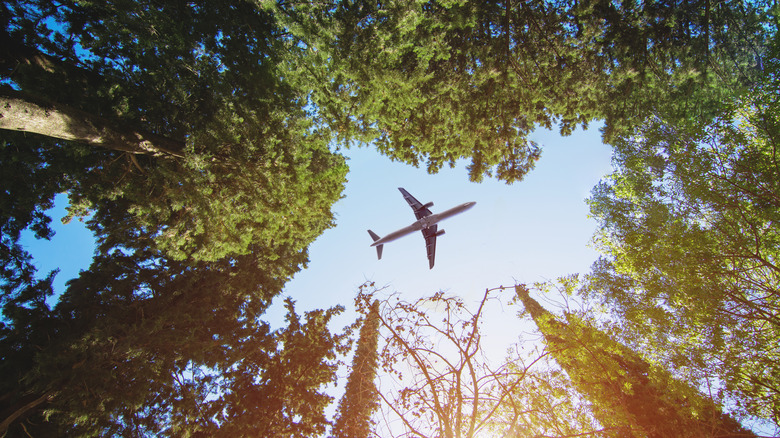The Most Exciting Aviation Changes You Can Expect To See In 2024
Worldwide tourism continues to rebound in 2024 and in some places, it already exceeds pre-pandemic levels.Airports and airlines around the world are scurrying to respond to the top travel trends, and they're planning a series of rollouts to advance the industry and improve passenger experiences. The first big change is a slew of new large and small planes that offer many upgrades to delight travelers, such as new seats.
Japan Airlines' new Airbus A350-1000 features some of the most spacious economy seats in the industry, along with posh first-class and business suites that boast exciting new features. One is the high-tech headrest speakers in seats that adjust to background noise so that no one outside the suite can hear what an occupant is listening to. This allows passengers to enjoy entertainment without the annoyance of earbuds, cables, and adapters while protecting their privacy and keeping overall noise down in the cabin. Meanwhile, Air New Zealand is focusing on enhancing the experiences of economy travelers on select overseas flights, who can pay $400 to $600 for a four-hour nap in one of six cozy Skynest bunks. On the new A321XLR models, which are single-aisle planes, cabins have been modernized, business suites have new doors, and economy seats boast large entertainment screens and power outlets.
Airport upgrades
In addition, expect to see a number of airport and infrastructure renovations and expansions across the globe. At LAX, the five-year project to construct the Automated People Mover is nearing completion. The train system is expected to improve passenger and vehicle flows inside and outside the airport by connecting airport terminals with the new Metro Transit Center, rental car facilities, ride-hailing spots, and parking lots. It's expected that the system will be operational by fall 2024. In addition, a major upgrade is underway at the Pittsburgh International Airport, where a new terminal will connect passenger security zones with gates and concession areas.
Abu Dhabi International Airport recently opened the enormous new Terminal A, a state-of-the-art facility that features luxurious relaxation areas and spas where tired passengers can get some pampering. Besides adding and revamping terminals, several airports are also planning a series of smaller upgrades to improve passenger experiences. New bag scanners at some airports will allow travelers to pass through security without removing liquids or electronics from their bags. Moreover, better airline and airport app integration is expected to reduce wait times during boarding.
Increasing AI integration
AI integration is becoming common in several industries, so it comes as no surprise that it's increasing at airports, too. Prior to 2024, most airports were already using AI systems to manage passenger flows and for passenger self-check-in and bag drop-off. Now, we're seeing further AI integration at airports that supports better management of turnaround times. Eindhoven Airport in the Netherlands has deployed an AI system called Deep Turnaround in some of its aircraft, which uses apron cameras to monitor the ground handling process from start to finish, allowing airlines to better predict and understand the source of delays. The airport plans to expand the Deep Turnaround program to more aircraft in 2024.
Another emerging area is "smart airports," a term that encompasses the full range of automation and robotics technologies. A Mordor Intelligence report predicted that the airport robot market, which is already worth $9 billion, will grow steadily into 2025 and after. Airport robots can reduce the need for human personnel by providing passengers with travel information and handling security screening and baggage handling tasks. They can also assist passengers with disabilities, but more on that later.
Lounge access changes
Airport lounges have grown increasingly crowded over the years. To address this issue, several airlines have taken steps to tighten lounge access rules in the new year. As of January 1, 2024, holders of the Delta SkyMiles® Platinum American Express Card and Platinum Business Card are excluded from using the Delta Sky Club. In addition, American Airlines decided that only AAdvantage® members can buy one-day passes to the American Airlines Admirals Club and single-visit passes to the Flagship Lounge, and Alaska Airlines raised prices for Alaska Lounge and Alaska Lounge+ memberships.
This means that from now on, passengers will need to have the right card or in some cases pay extra to enter a lounge, sprawl out in a comfy chair, and enjoy unlimited free coffee, food, and drinks. This is not great news for budget travelers, while business travelers and frequent flyers are less likely to be affected by the changes. For those who've been shut out, this tool might help you access those incredible lounges.
Greater focus on accessibility
Airports are also taking steps to become more welcoming, particularly for differently abled travelers. For example, in late 2023, Emirates and the Dubai International Airport introduced an innovative initiative to support neurodivergent passengers, who may experience extreme anxiety when deviating from their routines and encountering unexpected situations, such as travel delays. Through this program, which Emirates developed by working with local schools and autism groups, therapists and parents accompany neurodivergent children as they rehearse all the steps of the travel experience from obtaining boarding passes and navigating through the airport to boarding the plane. The rehearsal not only helps passengers and their families better prepare for trips but also helps the airline and airport better understand and anticipate the complex needs of neurodivergent travelers.
Automation technologies are also showing promise in supporting passengers with disabilities. The Swiss company DAAV is pioneering the use of self-driving wheelchairs in airports. It conducted successful tests of its product in the Zurich airport in 2023, with plans to expand to other markets in 2024.
Green aviation taking off
Airports and airlines continue to prioritize sustainability, recognizing their significant role in contributing to global carbon emissions. Sustainable solutions under consideration are using more electric ground vehicles at airports and electricity-and hydrogen-powered commercial flights. Some smaller postal and executive flights are already using electric energy, and commercial electric air travel is not that far away. SAS Scandinavian Airlines is preparing to introduce electric commercial flights in 2028.
Meanwhile, sustainable aviation fuel (SAF), may be a medium-term answer to carbon reduction as more environmentally friendly aircraft engines are being developed. SAF is a biofuel produced from corn grain, oil, seeds, algae, agricultural residues, and other biological materials. It's environmentally responsible not only because its carbon footprint is lower than that of traditional jet fuel but also because of its positive effects on things like water quality and biodiversity. While the demand for SAF is high, the current challenge in the aviation industry is limited supplies. To address this, some airports are adopting strategic initiatives such as SAF Incentive Funds to drive production, while one airport — Pittsburgh International Airport — is even developing plans to produce SAF onsite.
